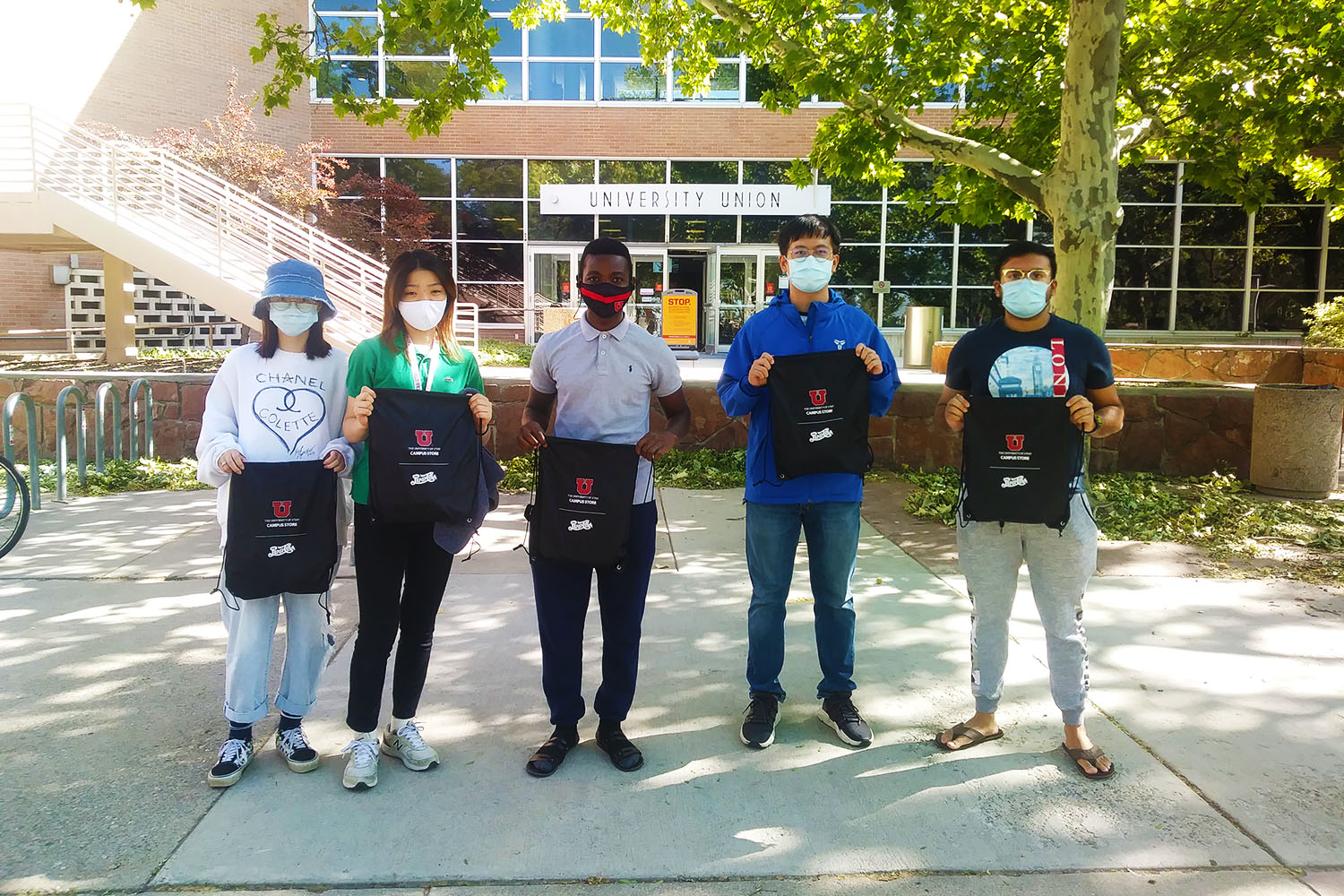Not long after the dust settled on the transition to remote learning across campus in March, the Office of International Student & Scholar Services (ISSS) started shifting their efforts to a new challenge–what would it take to bring new international students to the U in the fall, given the challenges presented by Covid-19?
In a typical year, the ISSS office holds several full-day orientation sessions, providing breakfast and lunch and educating students about visa requirements, their rights and responsibilities in the U.S., and how to seek out support on campus and from others who share their circumstances. “Last year we hosted 16 in-person orientation days,” said ISSS director Chelsea Wells. “In May of this year, we realized we probably wouldn’t be doing that for fall.”
Instead of being dismayed at the prospect of creating a catalog of new, virtual-orientation content, the ISSS staff took the pivot as an opportunity to better serve students. “From the start, we really tried to think about it from a positive standpoint. This is something we’ve wanted to do for a long time,” said Wells. Together, the team explored answers to ‘What is orientation?’, ‘What does it mean to us?,’ ‘What kind of presence do we want to have?’
The result of the team’s reimagining begins with a series of robust pre-arrival modules in Canvas (the U’s online coursework management platform), that students complete remotely before they even begin their journey to Utah. Wells noted that in the past, her office struggled with “not knowing how that information landed with students,” but the new format allows for better assessment of comprehension.
The in-person, on-campus sessions were then transitioned to a series of Welcome Week webinars. Students were invited to submit questions in advance and anonymously during the live session. Each session was recorded so that students could review the information as necessary. “It’s no longer just a one-day sprint,” noted Wells. “If we can spread it out over time, it really helps our students retain the large amounts of information they must remember to be successful on campus.”
During the Welcome Week webinar series, students heard from a variety of offices on campus and covered topics from health and safety to student involvement.
“This has really been a fantastic catalyst to launch us into exploring new options and to think creatively while making orientation engaging and student-friendly,” said Wells.
While this year has been unsettling and unpredictable for everyone in the U community, abrupt changes to visa requirements and travel restrictions have added unique hurdles for international students.
Wells remarked that she was moved by the outpouring of support her office received in early July when the federal government issued new guidance that would severely restrict the ability of international students to continue their education in the U.S. (Those restrictions have been subsequently rescinded for all but new incoming students.)
“Students want predictability. They want to ensure that the game isn’t going to change. Anybody traveling to a different country for four to eight years would really want to understand the requirements and, unfortunately, right now many of the rules aren’t stable,” said Wells.
That uncertainly has helped fuel the work of the ISSS office to make the process of coming to the U as comprehensive and engaging as possible. Wells wants international students to know “that the U, particularly ISSS, truly cares about them. Whether they’re on campus or studying in their home country, we are doing everything we can to support their academic journey.”
“Of course, everyone is facing challenges right now, but international students are facing so many obstacles that continuing their studies may seem insurmountable. It’s important for people to have compassion for the fact that they just want to come here and study, and their journeys may be vastly different and more challenging than for students already in the United States,” said Wells.
The ISSS team is committed to doing everything they can to ensure students from all over the globe can do just that–come, study, and have a great experience during their time at the U.

